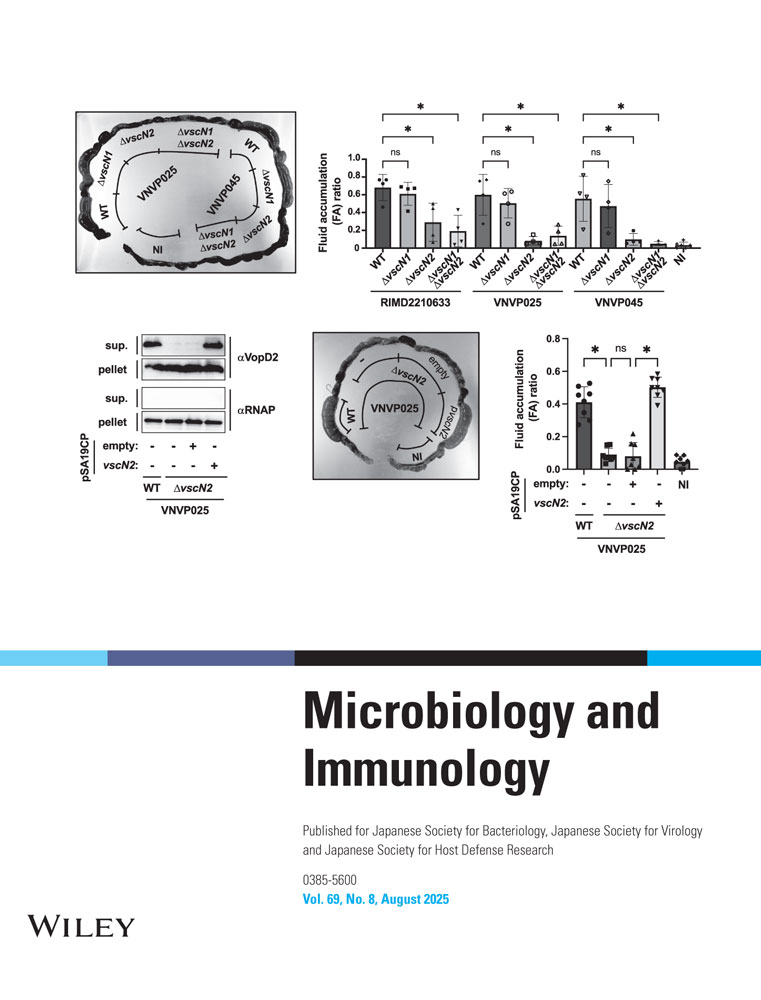Genetic Characterization of Escherichia coli O157:H7/– Strains Carrying the stx2 Gene but Not Producing Shiga Toxin 2
Abstract
Nine Escherichia coli O157:H7/– strains isolated primarily from non-clinical sources in Thailand and Japan carried the stx2 gene but did not produce Stx2 toxin in a reversed passive latex agglutination (RPLA) assay. A strain (EDL933) bearing a stx2 phage (933W) was compared to a strain (Thai-12) that was Stx2-negative but contained the stx2 gene. To study the lack of Stx2 production, the Thai-12 stx2 gene and its upstream nucleotide sequence were analyzed. The Thai-12 stx2 coding region was intact and Stx2 was expressed from a cloned stx2 gene using a plasmid vector and detected using RPLA. A lacZ fusion analysis found the Thai-12 stx2 promoter non-functional. Because the stx2 gene is downstream of the late promoter in the stx2 phage genome, the antitermination activity of Q protein is essential for strong stx2 transcription. Thai-12 had the q gene highly homologous to that of Φ21 phage but not to the 933W phage. High-level expression of exogenous q genes demonstrated Q antitermination activity was weak in Thai-12. Replication of stx2 phage was not observed in Stx2-negative strains. The q-stx2 gene sequence of Thai-12 was well conserved in all Stx2-negative strains. A PCR assay to detect the Thai-12 q-stx2 sequence demonstrated that 30% of O157 strains from marketed Malaysian beef carried this sequence and they produced little or no Stx2. These results suggest that stx2-positive O157 strains that produce little or no Stx2 may be widely distributed in the Asian environment.
Abbreviations
-
- E. coli
-
- Escherichia coli
-
- EHEC
-
- enterohemorrhagic Escherichia coli
-
- IPTG
-
- isopropyl-β-D-thiogalactopyranoside
-
- LB
-
- Luria-Bertani
-
- MMC
-
- mitomycin C
-
- PBS
-
- phosphate buffered saline
-
- PCR
-
- polymerase chain reaction
-
- PFGE
-
- pulsed field gel electrophoresis
-
- qut
-
- Q utilization sequence
-
- RPLA
-
- reversed passive latex agglutination
-
- slt
-
- Shiga-like toxin
-
- SSC
-
- saline-trisodium-citrate buffer
-
- Stx
-
- Shiga toxin
-
- TNP-PCR
-
- toxin-non-producing PCR.




